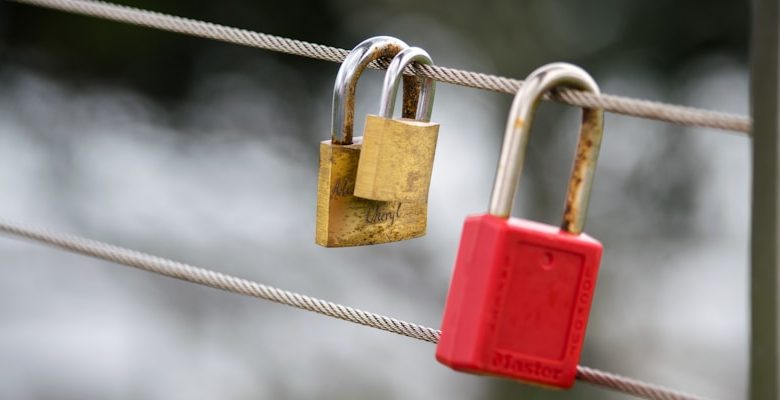How to Protect Your Private Keys from Cyber Threats

- Understanding the importance of private keys
- Common cyber threats targeting private keys
- Best practices for securing private keys
- The role of encryption in protecting private keys
- How to securely store private keys
- What to do if your private keys are compromised
Understanding the importance of private keys
Private keys play a crucial role in ensuring the security of your digital assets. They are essentially the passwords that grant you access to your cryptocurrencies or other sensitive information stored on the blockchain. Without your private key, you would not be able to make transactions or access your funds. It is important to keep your private keys secure to prevent unauthorized access and potential theft.
Private keys should never be shared with anyone and should be stored in a safe and secure location. It is also recommended to use hardware wallets or cold storage solutions to protect your private keys from cyber threats. By understanding the importance of private keys and taking the necessary precautions to keep them safe, you can minimize the risk of falling victim to hacking or theft.
Remember that losing your private key means losing access to your digital assets permanently. Therefore, it is crucial to back up your private keys in multiple secure locations to ensure that you can always recover them if needed. In conclusion, safeguarding your private keys is essential for protecting your investments and personal information in the digital world.
Common cyber threats targeting private keys
Private keys are valuable assets that require protection from various cyber threats. Hackers are constantly looking for vulnerabilities to exploit and steal private keys for their malicious purposes. It is essential to be aware of the common cyber threats targeting private keys to prevent any potential security breaches. Some of the primary threats to private keys include:
1. Phishing Attacks: Phishing attacks are one of the most common methods used by hackers to steal private keys. They use deceptive emails or websites to trick individuals into revealing their private key information. It is crucial to be vigilant and avoid clicking on suspicious links or providing sensitive information online.
2. Malware: Malware is another prevalent threat that can compromise the security of private keys. Hackers use malicious software to gain unauthorized access to private key information stored on devices. To protect private keys from malware attacks, it is essential to regularly update antivirus software and avoid downloading files from untrusted sources.
3. Man-in-the-Middle Attacks: In a man-in-the-middle attack, hackers intercept communication between two parties to steal private key information. This type of attack can occur when using unsecured networks or websites. To prevent man-in-the-middle attacks, it is recommended to use secure connections, such as HTTPS, and encrypt private key information.
4. Insider Threats: Insider threats pose a significant risk to private keys, as malicious insiders can abuse their access to steal private key information. Organizations should implement strict access controls and monitor employees’ activities to prevent insider threats. Regular security training can also help employees recognize and report suspicious behavior.
By understanding the common cyber threats targeting private keys and implementing appropriate security measures, individuals and organizations can protect their private key information from falling into the wrong hands. It is essential to stay informed about the latest cybersecurity trends and best practices to safeguard private keys effectively.
Best practices for securing private keys
When it comes to securing your private keys, there are several best practices you can follow to protect them from cyber threats. Private keys are crucial for encrypting sensitive information and authorizing transactions, making them a prime target for hackers.
- First and foremost, always generate your private keys in a secure environment. Avoid using public Wi-Fi or shared computers, as these can be compromised by malicious actors.
- It is essential to store your private keys in a secure location, such as a hardware wallet or encrypted USB drive. Never store them in plain text on your computer or mobile device.
- Regularly back up your private keys and store them in multiple secure locations. This will ensure that you can recover them in case of loss or theft.
- Use strong, unique passwords to protect your private keys and enable two-factor authentication whenever possible. This will add an extra layer of security to your accounts.
- Avoid sharing your private keys with anyone and be cautious of phishing attempts that may try to trick you into revealing them. Always verify the authenticity of the websites and applications you are using.
By following these best practices, you can significantly reduce the risk of your private keys falling into the wrong hands. Remember, protecting your private keys is essential for safeguarding your digital assets and sensitive information from cyber threats.
The role of encryption in protecting private keys
Encryption plays a crucial role in safeguarding private keys from potential cyber threats. By utilizing encryption techniques, private keys are scrambled into complex codes that can only be accessed with the corresponding decryption key. This adds an extra layer of security to private keys, making them less vulnerable to unauthorized access.
When private keys are encrypted, even if they are intercepted by cybercriminals, they would be virtually impossible to decipher without the decryption key. This significantly reduces the risk of private key exposure and potential security breaches. Encryption helps ensure that private keys remain confidential and secure, protecting sensitive information from falling into the wrong hands.
It is essential to use strong encryption algorithms when protecting private keys. Advanced encryption standards such as AES (Advanced Encryption Standard) or RSA (Rivest-Shamir-Adleman) are commonly used to secure private keys effectively. These encryption algorithms use complex mathematical calculations to transform private keys into unreadable data, enhancing their security.
How to securely store private keys
When it comes to securely storing private keys, it is crucial to take the necessary precautions to protect them from cyber threats. Private keys are sensitive pieces of information that grant access to your digital assets, so it is essential to keep them safe and secure.
One way to securely store private keys is by using a hardware wallet. Hardware wallets are physical devices that store your private keys offline, making them less vulnerable to hacking and cyber attacks. By keeping your private keys offline, you can significantly reduce the risk of unauthorized access to your digital assets.
Another option for securely storing private keys is to use a paper wallet. A paper wallet is a physical document that contains your private keys in a printed form. By keeping your private keys offline and in a physical format, you can further minimize the risk of cyber threats.
It is also important to ensure that you store your private keys in a secure location, such as a safe or a lockbox. By keeping your private keys in a secure location, you can prevent them from falling into the wrong hands and protect your digital assets from unauthorized access.
Overall, taking the necessary precautions to securely store your private keys is essential for protecting your digital assets from cyber threats. By using hardware wallets, paper wallets, and storing your private keys in a secure location, you can minimize the risk of unauthorized access and keep your digital assets safe and secure.
What to do if your private keys are compromised
If you suspect that your private keys have been compromised, it is crucial to take immediate action to prevent any unauthorized access to your sensitive information. Here are some steps you can take to mitigate the risk of further damage:
- First, disconnect the affected device from the internet to prevent any ongoing communication with potential attackers.
- Next, contact your service provider or IT department to report the incident and seek guidance on the best course of action.
- Change all passwords and private keys associated with the compromised device to prevent any unauthorized access.
- Monitor your accounts and devices closely for any suspicious activity that may indicate ongoing security threats.
- Consider using two-factor authentication or encryption tools to add an extra layer of security to your sensitive information.
By taking these proactive measures, you can help protect your private keys from cyber threats and minimize the potential impact of a security breach on your personal and financial information.



